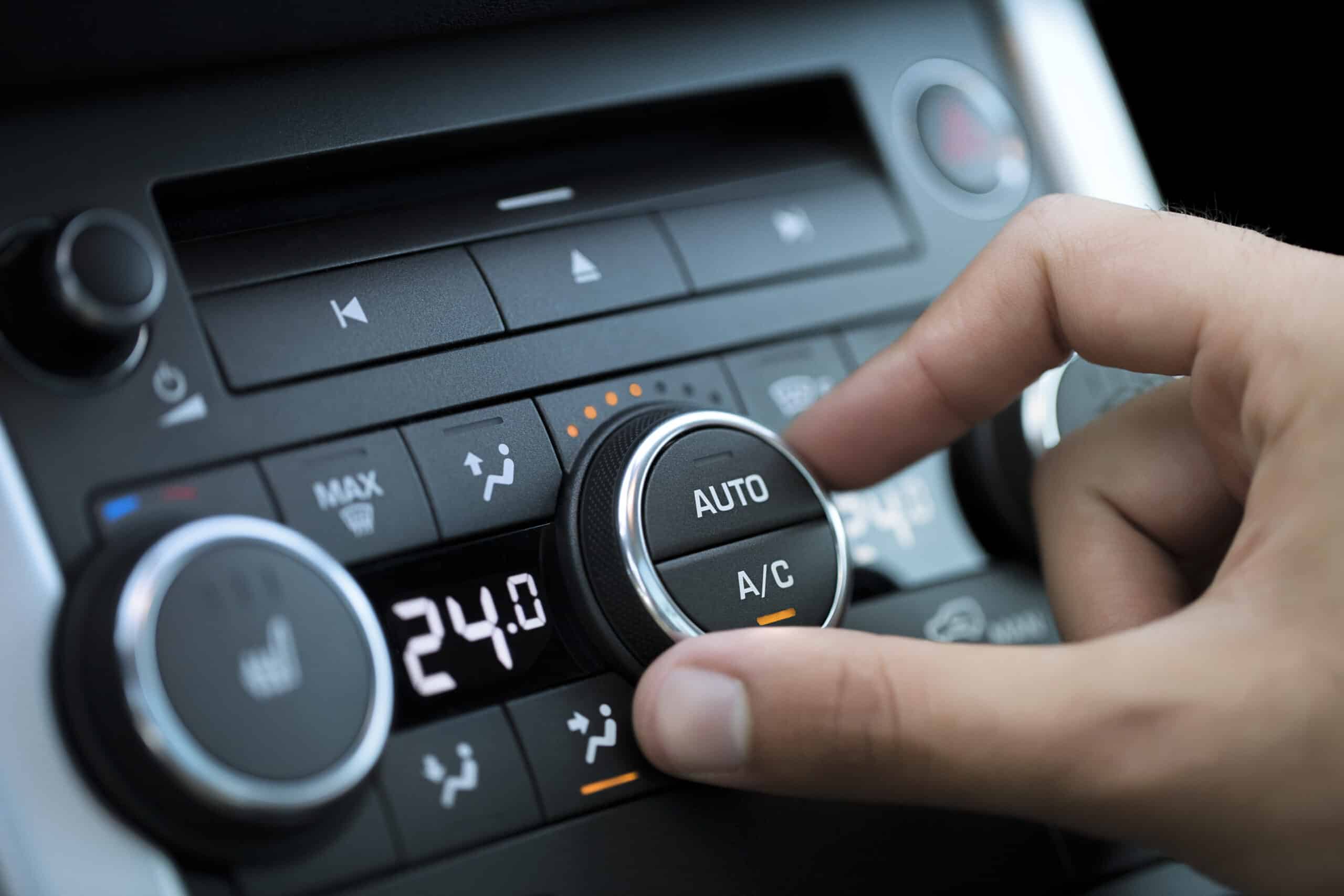Which Car Has The Best Air Conditioning

Staying Cool on the Road: Finding the Car with the Best Air Conditioning
For many drivers, a car's air conditioning system is more than just a comfort feature – it's a necessity. Whether battling sweltering summer heat or simply trying to defog windows in humid conditions, a reliable and powerful AC system can make all the difference. This guide explores the key factors to consider when evaluating a car's air conditioning performance, highlights models known for their excellent cooling capabilities, and discusses maintenance tips to keep your AC running strong.
Understanding Automotive AC Systems
Automotive air conditioning systems work by circulating refrigerant, a special fluid that absorbs heat as it evaporates and releases it as it condenses. The key components include:
- Compressor: Compresses the refrigerant, increasing its temperature and pressure.
- Condenser: Cools the high-pressure refrigerant, turning it into a liquid.
- Evaporator: Allows the liquid refrigerant to evaporate, absorbing heat from the cabin air.
- Expansion Valve/Orifice Tube: Regulates the flow of refrigerant into the evaporator.
- Refrigerant: The working fluid (typically R-134a or the newer R-1234yf) that absorbs and releases heat.
The effectiveness of an AC system depends on several factors, including the size of the compressor, the design of the ventilation system, the amount of insulation in the cabin, and the color of the car (darker colors absorb more heat).
Key Features to Look For
When evaluating a car's AC system, consider these features:
- Airflow: The volume of air that the system can move. Higher airflow generally means faster cooling.
- Cooling Capacity: The ability of the system to lower the cabin temperature. Look for systems that can quickly cool the car down in extreme heat.
- Number of Vents: More vents provide better air distribution and more even cooling.
- Rear Vents: Essential for keeping rear passengers comfortable, especially in larger vehicles.
- Automatic Climate Control: Maintains a consistent temperature in the cabin without manual adjustments. Dual- or tri-zone climate control allows different temperature settings for different areas of the car.
- Refrigerant Type: Newer vehicles use R-1234yf, which is more environmentally friendly but potentially more expensive to service. Older vehicles may still use R-134a.
Top Contenders: Cars with Excellent Air Conditioning
While subjective, certain car models consistently receive praise for their exceptional AC performance. Here are a few examples:
- Acura MDX: Known for its powerful AC and well-designed ventilation system, including rear vents and tri-zone climate control. The MDX’s robust system handles hot weather with ease, making it a favorite among families.
- Honda Accord: The Accord offers a reliable and effective AC system, particularly in newer models with dual-zone climate control and well-placed vents. While not the most powerful on the market, it provides consistent and comfortable cooling.
- Toyota Avalon: A comfortable and spacious sedan with a strong and efficient AC system. The Avalon's larger cabin benefits from a powerful compressor and well-designed vents, ensuring even cooling throughout.
- Tesla Model 3/Y: Tesla's electric vehicles feature advanced climate control systems, including a "bioweapon defense mode" that filters out harmful particles. The quick cooling and effective air filtration make Teslas a comfortable choice, though some have noted that the system can be power-hungry.
- Subaru Outback: Even though Subaru is known for all-wheel drive, the Outback has a respectable AC, often cited for its ability to cool down quickly, even in high humidity. The spacious cabin is effectively cooled by well-positioned vents.
It’s important to note that performance can vary depending on the specific trim level and options package. Always test the AC system during a test drive to ensure it meets your needs.
Comparing AC Systems: Beyond the Brand
Focusing solely on the car brand is less helpful than comparing the specifics of the AC system itself. Here's why:
- Compressor Size: A larger compressor can pump more refrigerant, resulting in greater cooling capacity. Unfortunately, this information isn’t always readily available.
- Condenser Design: An efficient condenser dissipates heat effectively, preventing the system from overheating and maintaining optimal performance.
- Ventilation System: The design and placement of vents play a crucial role in air distribution. Some systems prioritize airflow to the front, while others offer better coverage for rear passengers.
Furthermore, aftermarket accessories like window tint and sunshades can significantly improve a car's cooling performance by reducing solar heat gain.
Warranty Considerations
Most car manufacturers offer a warranty that covers the AC system for a specific period, typically 3 years or 36,000 miles. Be sure to review the warranty terms and conditions to understand what is covered and what is not. Common issues covered by warranty include compressor failure, refrigerant leaks, and faulty sensors.
Extended warranties may offer additional coverage for the AC system, but it's important to weigh the cost against the potential benefits. Consider the car's reliability history and your own driving habits when deciding whether to purchase an extended warranty.
Maintenance Tips for Optimal AC Performance
Regular maintenance is crucial for keeping your car's AC system running smoothly and efficiently. Here are some essential tips:
- Refrigerant Recharge: Over time, refrigerant can leak from the system, reducing its cooling capacity. Have the refrigerant level checked and recharged as needed.
- Condenser Cleaning: The condenser can become clogged with dirt, debris, and insects, hindering its ability to dissipate heat. Clean the condenser regularly to maintain optimal performance.
- Cabin Air Filter Replacement: A dirty cabin air filter can restrict airflow and reduce the efficiency of the AC system. Replace the filter according to the manufacturer's recommendations.
- Leak Detection: Address refrigerant leaks promptly to prevent further damage to the system and avoid costly repairs.
- Professional Inspection: Schedule a professional AC inspection at least once a year to identify and address potential problems before they escalate.
Ignoring AC maintenance can lead to reduced cooling performance, increased energy consumption, and even component failure. By following these simple tips, you can keep your AC system running strong for years to come.
Cost Considerations: Purchase and Maintenance
The initial cost of a car with a superior AC system may be slightly higher, especially for models with advanced features like dual- or tri-zone climate control and advanced air filtration. However, the long-term benefits of a comfortable and reliable AC system can outweigh the upfront cost.
Maintenance costs for AC systems can vary depending on the type of car and the complexity of the system. Refrigerant recharges typically cost between $100 and $300, while more extensive repairs, such as compressor replacement, can cost upwards of $500 or more. Regular maintenance and prompt repairs can help prevent costly breakdowns and extend the life of your AC system.
Environmental Impact and Refrigerant Choices
The type of refrigerant used in a car's AC system can have a significant impact on the environment. R-134a, the most common refrigerant used in older vehicles, is a potent greenhouse gas. Newer vehicles use R-1234yf, which has a much lower global warming potential. However, R-1234yf is more expensive and requires specialized equipment for servicing.
When choosing a car, consider the environmental impact of the refrigerant used in its AC system. Opting for a vehicle with R-1234yf can help reduce your carbon footprint and contribute to a more sustainable future.
Making the Right Choice
Choosing the car with the best air conditioning involves considering several factors, including your budget, driving needs, and personal preferences. By understanding the key features of automotive AC systems, researching different models, and prioritizing regular maintenance, you can find a car that keeps you cool and comfortable on the road for years to come.
Remember to test drive several vehicles and pay close attention to the AC performance. Ask the salesperson about the system's features and maintenance requirements. By doing your research and making an informed decision, you can find the perfect car to beat the heat.










